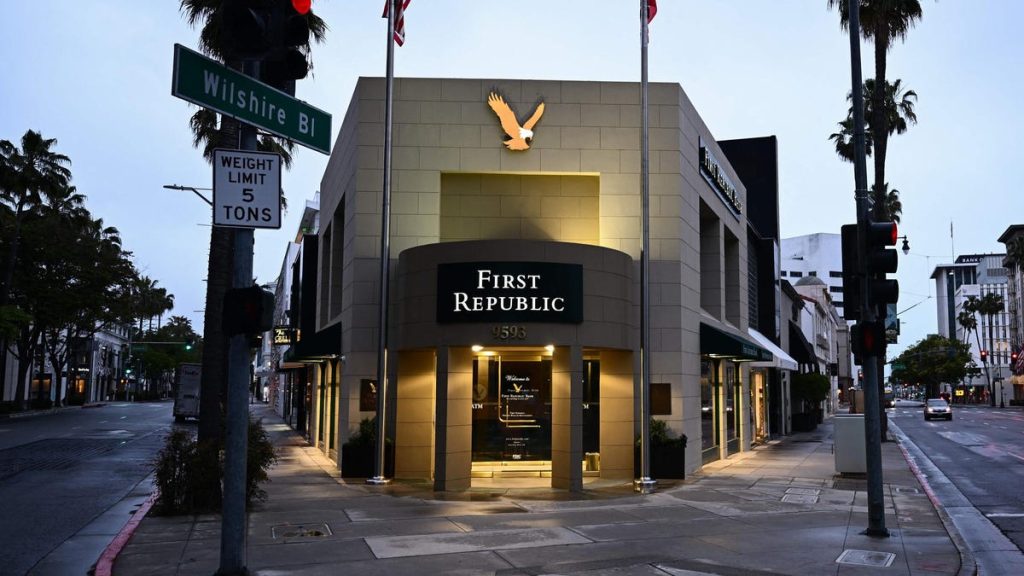Topline
First Republic became the second-largest bank to fail in American history Monday after the federal government oversaw the offloading of its assets to JPMorgan Chase – here’s what led to the stunning disintegration of the San Francisco-headquartered bank targeting wealthy clientele.
Key Facts
January 13: First Republic delivers seemingly strong financial results from the last quarter of 2022, topping analysts’ earnings estimates, but the company reveals its interest expenses surged some 2,040% year-over-year and 153% from the prior quarter, in what turned out to largely be the death knell for the bank as it failed to navigate the Federal Reserve’s 2022-23 interest rate hike campaign.
March 8: Fellow California bank Silvergate Capital announces it will cease operations as it failed to recover from solvency challenges spurred by its dealings with cryptocurrency flameouts such as FTX, while Silicon Valley Bank stokes panic among customers after it revealed the sale of $2 billion in debt securities at a loss to shore up liquidity.
March 10: Financial regulators close Silicon Valley Bank in a stunning mid-day move as the bank proved incapable of meeting withdrawal requests; shares of First Republic slide 29% between March 8 and March 10 as investors look to minimize exposure to arguably Silicon Valley Bank’s closest peer.
March 12: The crypto-happy, New York-based Signature Bank fails, while federal regulators announce they will guarantee depositors above the $250,000 limit at Signature and Silicon Valley Banks—the second and third-biggest banks to ever fail in the U.S. at the time.
March 16: After shares of First Republic fall a further 62% from March 10 as the bank’s leadership failed to calm investors about its outlook, a consortium of the 11 largest American banks injected First Republic with a total of $30 billion in uninsured deposits in a government-backed move.
March 19-20: Bank failures go abroad as the Swiss government orchestrates UBS’ takeover of its ailing rival Credit Suisse on March 19, while the rescue efforts for First Republic gain little traction as its stock cratered nearly 50% to an all-time low March 20.
April 24: Following a fairly quiet month for First Republic (its share prices actually rose nearly 25%), the bank delivers a downright dreadful earnings report, disclosing it suffered a 41% outflow in deposits during the first quarter of 2023, sparking reports about the Biden Administration scrambling to find a solution for the bank and its stock sliding all the way down to $8, nearly 95% below its early March share price.
May 1: First Republic is officially no longer after the Federal Deposit Insurance Corporation announces the closure of the bank and the sale of most of its deposits and assets to JPMorgan Chase; JPMorgan CEO Jamie Dimon confirms to analysts his firm won’t retain First Republic name and branding, writing the final chapter in the coffin for the bank’s 38-year history.
Key Background
The target federal funds rate, which sets the cost of borrowing between banks and is determined by the Fed, sits at 4.75% to 5%, a nearly 20-year high and up from near 0% in March 2022. Higher interest rates make banks’ cost of doing business much steeper, and the failures of First Republic, Silicon Valley and Signature Banks can largely be traced to their ill-preparedness for changes to rates. “The balance sheets of the three failed banks shared a vulnerability to rising rates that exceeds that of most other regional banks,” Wells Fargo strategist Paul Christopher explained in a Monday note to clients.
Surprising Fact
Though this year’s three bank failures fall far short of the several dozen failing every year between 2008 and 2013, 2023 is by far the most costly year ever for bank failures measured by the shuttered institution’s assets, according to LPL Financial research.
Why First Republic Bank Collapsed (Wall Street Journal)
10 Days That Have Roiled Markets: A Timeline of the Banking Chaos (New York Times)
First Republic Shows Why Risk Management And Innovation Should Be Allies, Not Enemies (Forbes)
JPMorgan Stock Set For Second-Best Day This Year After First Republic Takeover (Forbes)
Read the full article here
